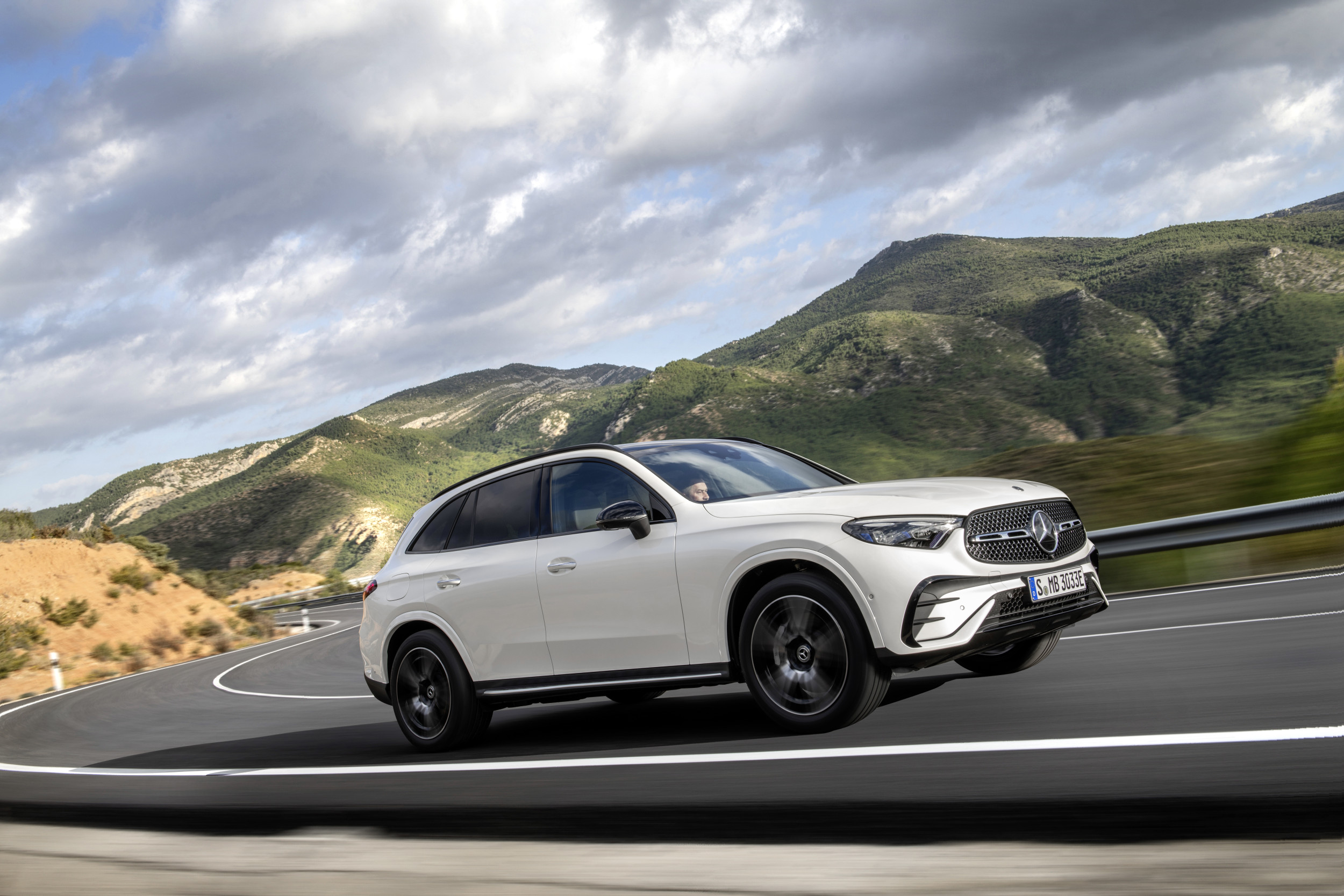
The Mercedes-Benz Journey Toward Electrification
Carl Benz introduced the world to the first three-wheeled automobile in 1886. Since then, Mercedes-Benz has forged a continuous legacy of innovation. For nearly 140 years, the company has pursued advancements in safety, powertrain, aerodynamics, technology and beyond.
Innovation Heritage
Driven by its rich heritage of innovation and reinvention, Mercedes-Benz remains committed to leading the automotive industry. "As we pivot towards an all-electric future, our history guides us; it's a marathon, not a sprint," said Dimitris Psillakis, president and CEO of Mercedes-Benz USA.
Pioneering technologies like the DRIVE PILOT SAE Level 3 conditionally automated driving system, a diverse and electric vehicle lineup, a sustainable production strategy and an expanding network of charging stations propel the brand on this journey. Overall, the company aims to redefine luxury and reshape the automotive landscape by the end of 2039.
Mercedes-Benz innovation was recognized by Newsweek during the Auto Disruptor Awards for 2024, where the company received Visionary, Powertrain and Technology prizes. "These awards underscore our efforts to pioneer a future where mobility is sustainable and accessible and motivate us to continue redefining the limits of what's possible," Psillakis personally reflected on this achievement.

Push Toward Electrification
As Mercedes-Benz looks forward to the next decade, it builds upon its rich legacy of electric vehicle innovation to meet customer needs. Over a century has passed since the company introduced its first electric-powered car, the Mercedes-Mixte. In the present day, it plans to shift its strategic focus to electric vehicles (EVs), plug-in hybrid electric vehicles (PHEVs) and international combustion engine (ICE) vehicles. Its long-term ambition is to transition to an all-electric and carbon-neutral fleet.
"The pace of this transformation will be established by customers and market conditions," said Psillakis, referring to the brand's desire to innovate not only its products but also provide access to reliable, high-speed charging. This goal is outlined in the Ambition 2039 strategy, which revolves around achieving carbon neutrality across the entire vehicle fleet, from the value chain to the vehicle's entire lifecycle. Furthermore, the company aims to reduce CO2 emissions per passenger car by up to 50 percent across all production and distribution stages by the end of the decade, compared to 2020 levels.

Redefining Electric Vehicles and Charging
For Mercedes-Benz, their vision of sustainable mobility requires continued attention on innovation. The brand currently offers five all-electric models, with the G 580 with EQ Technology being the sixth and coming to dealerships later this year. Each of the vehicles in its product portfolio represent advancements in performance, efficiency and superior design. The vehicles integrate state-of-the-art electric powertrains for smooth acceleration and advanced batteries for improved efficiency and range. Features like the MBUX Hyperscreen and infotainment (information-entertainment) technology enhance the user experience, prioritizing comfort and connectivity.
"We don't want to build just the EVs from Mercedes-Benz, but the Mercedes-Benz of EVs," said Psillakis, highlighting the company's commitment to innovation in electric mobility and luxury to offer customers unique experiences. These experiences extend beyond environmental benefits to redefine luxury within a sustainable framework.
Part of this luxury experience includes ensuring charging accessibility. In 2023, the Mercedes-Benz Charging Network premiered, resulting in a commitment to build more than 2,500 high-power chargers at 400 hubs in North America by the end of the decade. The first high-power charging hub in the U.S. opened in Atlanta at the MBUSA headquarters in November of 2023, with hubs around the country continuing to roll out this year. Instead of waiting for infrastructure to be built, the company is taking proactive steps to be part of the solution.

A Glimpse of Autonomous Mobility
Mercedes-Benz is also making strides in its approach to autonomous mobility as the first automaker certified to offer an SAE Level 3 conditionally automated driving system in the United States. This technology represents a major leap in safety and, according to Psillakis, provides a glimpse into the future of self-driving transportation.
The DRIVE PILOT technology enables hands-free and eyes-free driving in complex environments, managing speed and distance, and navigating traffic jams with minimal driver intervention. Currently approved for limited road use in California and Nevada, the system prioritizes safety and comfort and reduces driver fatigue and stress, ultimately enhancing overall road safety. Features such as an intelligent driver monitoring system with an interior camera and specialized illuminated displays on the steering wheel contribute to ensuring safety and ease of use.
Sustainable Business Strategy
Moreover, Mercedes-Benz distinguishes itself by its determination to revolutionize the industry from the ground up. This transformation involves integrating sustainability into its production processes and incorporating green energy and resource-efficient manufacturing methods. The cornerstone of this approach lies in leading with the 'Design for Circularity' principle, including an expansion of utilizing recycled materials and renewable energies in production.
To achieve its decarbonization objectives, the company plans to incorporate CO₂-reduced steel, aluminum and recycled materials produced using electric-arc furnaces powered by renewable energy sources. For example, the steel utilized in vehicles contains recycled scrap content produced by Steel Dynamics using 100 percent renewable energy. Additionally, ongoing projects for battery recycling and water multi-reuse are underway.

Future of All-Electric Mobility
"Staying ahead means anticipating change and remaining nimble amidst the ever-evolving automotive landscape," said Psillakis. The launch of the forthcoming G-Class with EQ (Electric Intelligence) Technology and the GLC 350e Plug-in Hybrid, which will both be available in dealerships later this year, highlights the company's anticipation of trends and ability to adapt to consumer preference in a market when flexibility is paramount.
These new innovations promise a fusion of iconic design and electric efficiency, catering to a broader Mercedes-Benz customer base. The transition towards electrification will ultimately hinge on customer needs and market conditions. Mercedes-Benz is ready to deliver the luxury and new technology its customers are accustomed to. "The cars are all-electric, the feeling is all-Mercedes," he concludes, alluding to the heritage of innovation.